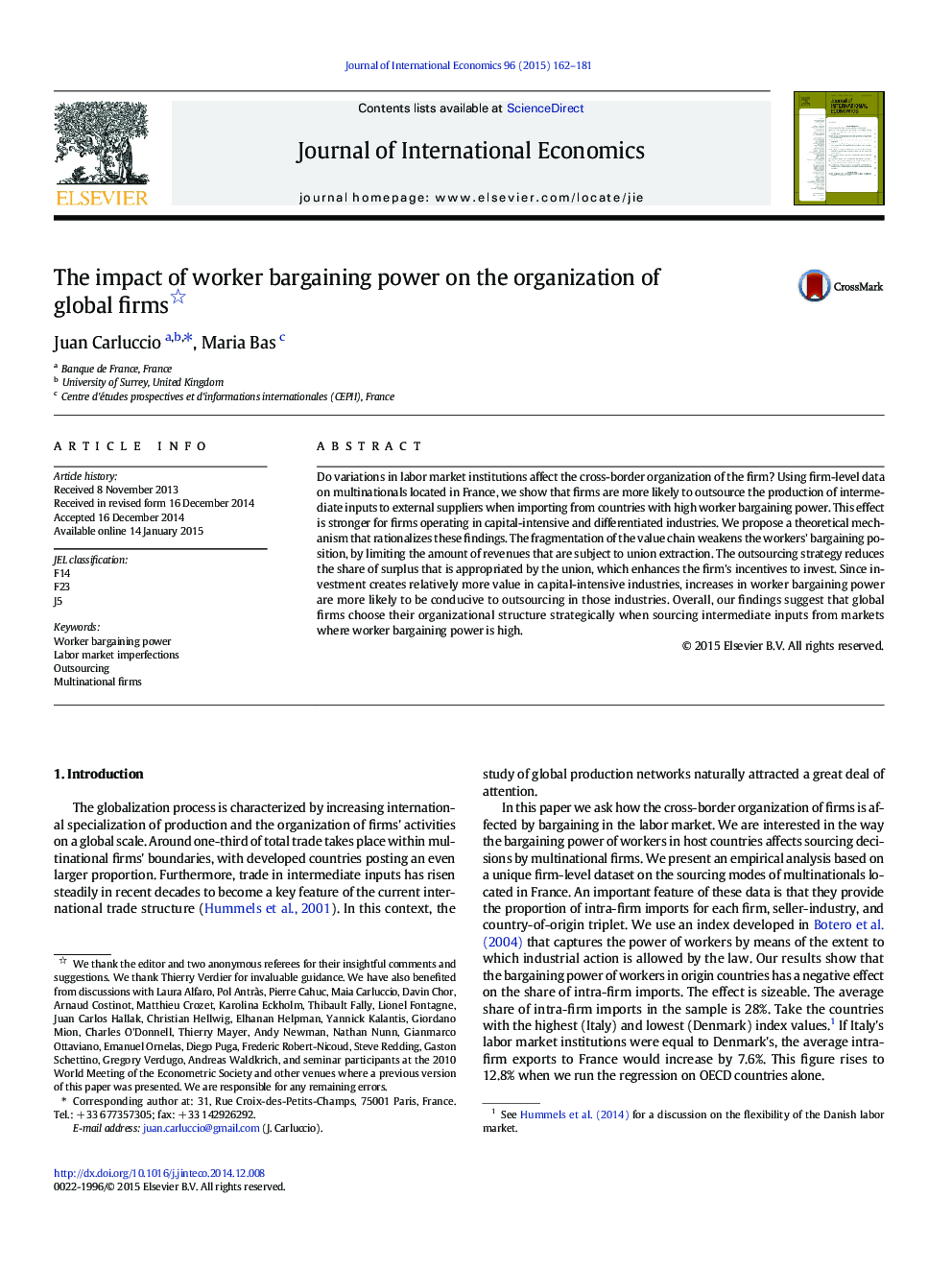| Article ID | Journal | Published Year | Pages | File Type |
|---|---|---|---|---|
| 962941 | Journal of International Economics | 2015 | 20 Pages |
•Worker bargaining power reduces intra-firm imports by French multinationals.•Develop model to rationalize the empirical results•Multinationals use organization strategically when sourcing from unionized markets.
Do variations in labor market institutions affect the cross-border organization of the firm? Using firm-level data on multinationals located in France, we show that firms are more likely to outsource the production of intermediate inputs to external suppliers when importing from countries with high worker bargaining power. This effect is stronger for firms operating in capital-intensive and differentiated industries. We propose a theoretical mechanism that rationalizes these findings. The fragmentation of the value chain weakens the workers' bargaining position, by limiting the amount of revenues that are subject to union extraction. The outsourcing strategy reduces the share of surplus that is appropriated by the union, which enhances the firm's incentives to invest. Since investment creates relatively more value in capital-intensive industries, increases in worker bargaining power are more likely to be conducive to outsourcing in those industries. Overall, our findings suggest that global firms choose their organizational structure strategically when sourcing intermediate inputs from markets where worker bargaining power is high.
